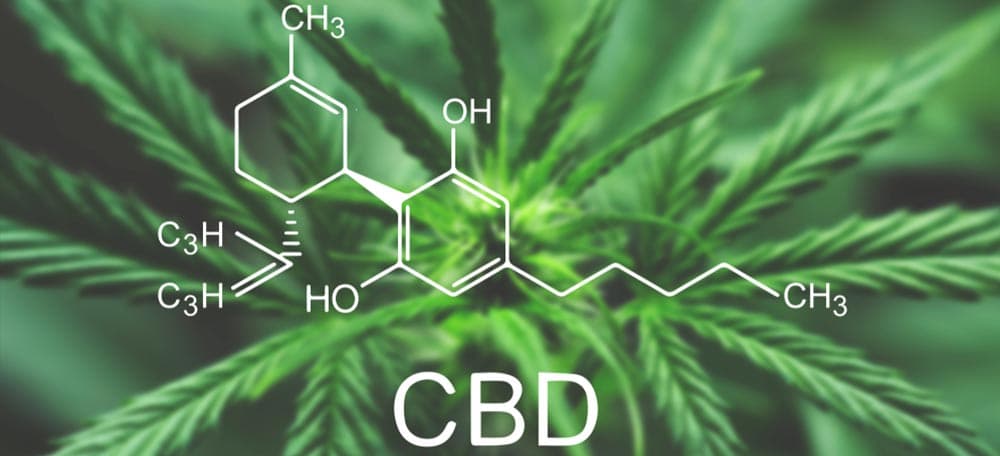CBD, THC Archives
7 Misconceptions About CBD
Cannabidiol, or commonly known as CBD, is one of two the most recognized cannabinoids found in cannabis and it’s now gaining more attention than ever. CBD continues to attract more interest because of its many benefits and potential medical uses. In addition, there are many misconceptions about CBD.
With the growing popularity of CBD, there are also many misconceptions about this cannabinoid, its effects, and uses. Because cannabidiol is derived from the cannabis plant, it’s often compared to THC and different myths have grown around this active compound.
Thus, we’ve prepared the list of the most popular misconceptions about CBD to help you understand this cannabinoid better and be aware of all the benefits that come with it.

1. CBD is medicinal, THC is recreational
One of the biggest misconceptions about both CBD and tetrahydrocannabinol (THC) is that the first one is medicinal, while the other one is the plants recreational component that gets the user high. However, it turns out that THC may actually come with as many positive effects as CBD.
Of course, CBD has great potential in terms of medicinal use, but most patients using cannabis-based products for more serious conditions claim that a mix of both THC and CBD is the most beneficial for their health. In fact, people suffering from major medical cases tend to profit more from THC, as it may be helpful in managing certain symptoms.
2. CBD is non-psychoactive
Many people get confused when hearing that CBD is, in fact, psychoactive, as it has an effect on the person’s mental state. Although CBD is often mischaracterized in many publications as a non-psychoactive and non-psychotropic cannabinoid, it’s non-intoxicating, as it doesn’t make the user high like THC. While it may be beneficial in terms of treating anxiety, schizophrenia, addiction, and even depression, it’s definitely psychoactive.
3. CBD has sedating properties
Many people believe that CBD is sedating, but they couldn’t be more wrong. It has shown to be, in fact, counteracting to the sedative effects of the second-most-famous cannabinoid, THC. It reduces the “hangover” after consuming too much THC and delays the time of sleep. So, what’s the “why” behind this misconception? It’s because many cannabidiol-infused products come with more than just pure CBD and the sedating properties are associated rather with the presence of terpenes, such as myrcene, than the cannabinoid itself.
4. CBD is CBD no matter where it comes from
Many cannabis opponents claim the source of cannabidiol doesn’t really matter. However, your body will definitely see the difference when using full-spectrum cannabidiol or simply smoking weed. Contrary to this myth, the source of CBD is very important, as industrial hemp-derived cannabidiol is not always the best source of this beneficial compound.
In fact, using CBD derived from cannabis strain that comes with both CBD and THC gives more powerful beneficial effects than using industrial hemp. Thus, you need more industrial hemp to get the small amounts of CBD oil, while you can get more of it when extracting from marijuana. Additionally, because of the entourage effect, CBD works with THC supporting each other and providing the user with the best effects possible.
5. CBD is harmful to children
Although CBD can be extracted from the same plant as THC, it interacts with our body differently. According to many studies, cannabidiol is not harmful to children. On the contrary, it comes with a wide range of positive effects for both children and adults. Additionally, many children are using CBD to treat a number of serious pediatric conditions, as it comes with no side effects whatsoever.
On the other hand, doctors don’t seem to recommend cannabidiol treatment for children that often. CBD is typically incorporated into the treatment once the traditional ways fail.
6. High doses of CBD are better
One of the most spread misconceptions about CBD is that it works better in high doses. However, when using whole-plant products, you need lower doses when compared to CBD isolates.
It turns out that full-spectrum CBD extracts come with more powerful effects than isolates because when cannabidiol, tetrahydrocannabinol, other cannabinoids, and terpenes are combined in one product, they create a synergistic effect and are more effective even at low doses.
Keep in mind that consuming high doses of CBD you can quickly develop tolerance and need more and more of this cannabinoid to get the same effects. When it comes to CBD, it may be more effective at low-to-moderate doses in terms of providing therapeutic benefits.
7. CBD gets you high
Although you may be surprised seeing this one on our list, the truth is many people still believe that CBD will make them high just like THC. As mentioned before, CBD is, in fact, psychoactive, but you don’t have to live in the fear of getting high from it.
What are the effects of cannabidiol then? It promotes relaxation and may be invaluable in terms of treating anxiety or depression. It’s recommended if you want to unwind after a long day at work.
Cannabidiol induces positive mood and improves sleep. This non-intoxicating cannabinoid relieves tension and helps to relax if you’re stressed. Moreover, when using CBD regularly, you may expect to have more energy, better mood, and a more positive attitude.
Conclusion
To sum up, there are many misconceptions about CBD floating around. Although this cannabinoid is becoming more popular these days, people still spread the myths because of the huge misinformation both in real life and on the Internet. It’s important to be informed and help stop spreading the myths about CBD to help people understand this versatile and, more importantly, medicinally beneficial cannabinoid.







